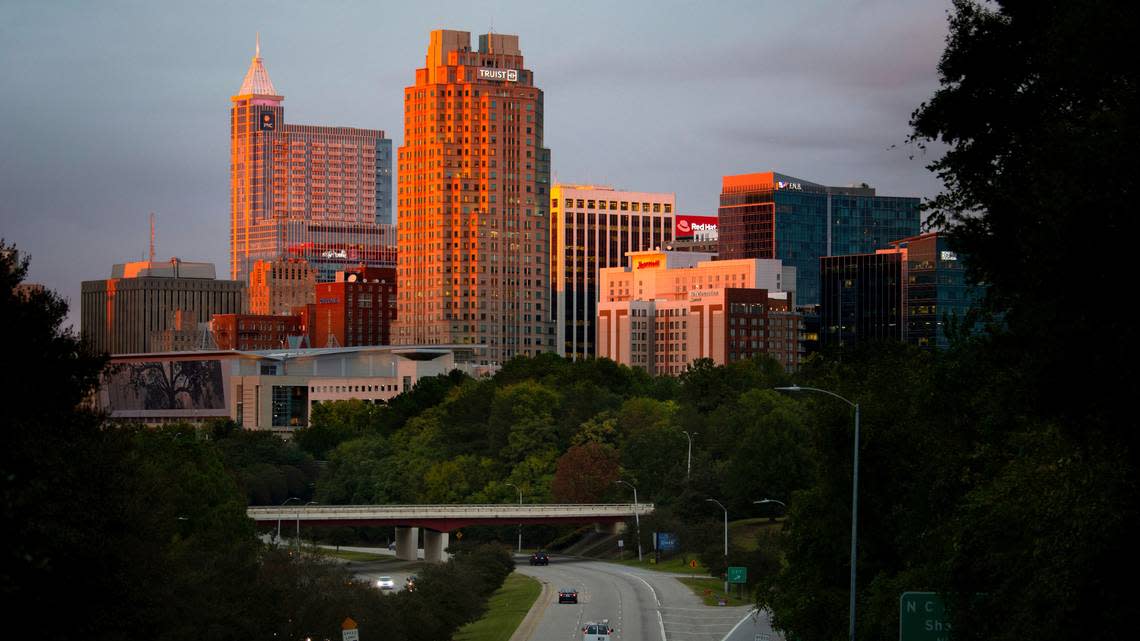A new ranking dings downtown Raleigh. Former city planner says he has the fix | Opinion

Anyone who walks down Raleigh’s signature downtown street – Fayetteville Street – can see the lingering effects wrought by the pandemic.
Fewer people work in downtown offices. There’s less street traffic. Some storefronts are empty. But the question is: Is the street and its adjoining blocks recovering like other cities?
Research by the University of Toronto’s School of Cities says no. Of the North American cities its researchers track for recovery based on mobile phone data, Raleigh’s downtown core ranks 59th out of 66. Charlotte ranks 35th. Unlike many cities, the Fayetteville Street area is lagging both in activity during work hours and during evenings and weekends.
Bill King, president and CEO of the Downtown Raleigh Alliance, said the university’s criteria does not reflect downtown’s progress. Its tracking, he said, is too narrowly focused on Fayetteville Street, while ignoring activity around the renovated Moore Square and Seaboard Station. He said activity slightly farther out in the Warehouse District and along Glenwood South is also left out.
“Our data does not exactly align with the University of Toronto data. In many ways downtown Raleigh is leading recovery for weekday visitation, and for weekend visitation, downtown Raleigh is at or in many cases above pre-pandemic levels,” King said.
Both versions of downtown are right. It’s true that activity has picked up in the Fayetteville Street area, especially on weekends. And that area should not be divorced from Moore Square. Meanwhile, Glenwood South is booming on weekends and the Warehouse District is far more populated and active than it was before stores, restaurants and apartments opened where there had once been empty brick warehouses.
But it’s also true that thousands of office workers haven’t come back to downtown’s towers. A walk along Fayetteville Street at midday or later in the evening is often a lonely experience. The street’s activity surged when it was reopened to traffic after years as a pedestrian mall, but now it looks worn and uninviting, especially to visitors in town for conventions.
King’s group, along with the city, supported a consultant’s study of ways to improve the Fayetteville Street area. The study’s recommendations include overhauling the streetscape encouraging more downtown housing and bringing in more restaurants and retail.
How far the city will go to fill this gap in an otherwise vibrant city will be an issue in races for City Council and mayor this fall. Appropriately, one of the candidates will be the city’s former chief planner and a former president of the American Planning Association, Mitchell Silver.
Silver, 63, left Raleigh in 2014 to become New York City parks commissioner. He came back in 2021 to find a city that had become uncertain about how much to change and how much to conserve of its leafy, smaller city character.
Silver thinks Raleigh needs to get its mojo back. “We need big ideas. Things that should start a conversation,” he said.
Livable Raleigh, the advocacy group that opposes what it considers development that intrudes on neighborhoods, is not supportive of Silver’s bid. The group called him a “development lobbyist” who will push the city to give developers all they want.
Giving developers a green light could overwhelm the city’s already fast-growing areas and further drain activity from its downtown core. But Silver said the best approach is to channel development, not resist it.
“One of the reasons I’m getting more active is that I want to build up development activity where it makes sense and discourage it where it doesn’t,” he said.
There’s good reason to be skeptical about giving developers more leeway across the city, but clearly the city needs to encourage more activity in the Fayetteville Street area.
It’s time for fresh and bold thinking about how to revive the heart of Raleigh. The winners in this fall’s election should be those who offer it.
Associate opinion editor Ned Barnett can be reached at 919-404-7583, or nbarnett@ newsobserver.com

